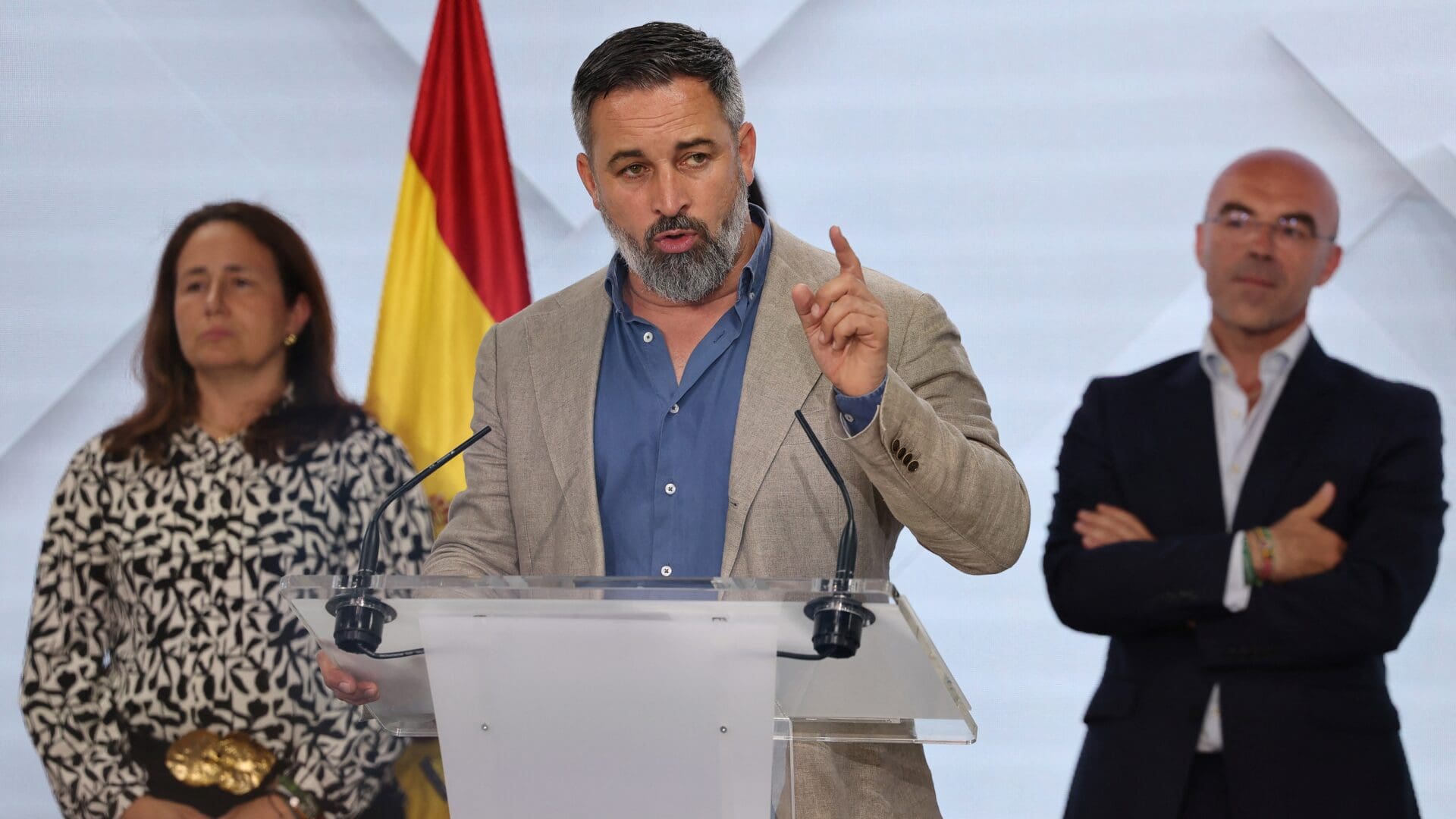Vox has terminated its regional coalition agreements with the Popular Party (PP) in five regions, something that no other party has ever done in the history of Spanish democracy, as VOX leader Santiago Abascal announced on Thursday. Parties have been dismissed, or have fallen by motions of no confidence, but it has never happened that they would break their deals with the government of their own volition, and rather stay in the opposition.
Vox has put its principles first.
These weeks, after the migratory wave in the Canary Islands, a large number, more than 5,000 of unaccompanied minors had arrived illegally to the islands. Being minors, by Spanish and European laws it is more difficult to expel them. Following the situation, Prime Minister Pedro Sanchez warned the Spanish regional governments about ‘solidarity’, that is, to distribute the illegally arriving minors throughout the national territory, something that had caused a conflict even within the ranks of the Popular Party, as many of them were reluctant. The same week, President of the PP Alberto Núñez Feijóo said that the regions governed by the PP were in solidarity with the Canary Islands, but one of its spokesmen in Parliament said that Spain should use the Navy to block the boats, something already proposed by Vox in 2019. The days were getting closer, and the PP had not made a firm decision, so Vox said that if the PP accepted to distribute the illegals in national territory, they would break the regional governments they had with them, a total of 5. Finally, the PP said that they would agree to the request of the socialist party (PSOE), and would accept the distribution of illegal migrants.
After the acceptance of the distribution of illegal minors by the PP, Vox broke its coalitions in the regional governments. Prior to the move, many analysts had said they were just ‘barking’ and that breaking the deal was just an empty threat; that they were not going to do such a thing, since it would mean losing political power, many people would stop receiving good salaries, and that such a move is very rare in politics. Nevertheless, Vox decided to defend its principles and quit five regional governments with the PP, despite all the speculation that said it had just been a bluff.
Vox is a party that has asserted its principles and has not renounced them for quotas of power, armchairs, or to be in regional governments. Juan García-Gallardo, now former vice-president of the Spanish region of Castilla y León, was clear in his statements.
‘The straw that has broken the camel’s back has been the failure to comply with the duty to combat illegal immigration. In recent days we have been insisting on the idea that we do not want Castilla y León to become France. We do not want our poor neighbourhoods to end up like the suburbs of Paris, Brussels, Malmö, and other cities in European countries where coexistence has been irremediably degraded as a result of an open borders policy,’
García Gallardo said, pointing out that this is demographic, cultural and economic suicide.
Political Strategy
Although it was a decision to defend their principles, we have to analyse this from a political and a strategic perspective, since the decision to break regional government coalitions has political and electoral consequences.
This strategy may be harmful in the short term,
since Vox may have shown the Spanish people that it is not in favour of governability and is not an alternative to oust Pedro Sanchez, so the short-term voter who wants to oust Sanchez from power will probably choose to vote for the PP. However, if we analyse this decision in the long term, Vox has acted well, not only for defending its principles, but for a long-term strategic vision.
Spain, fortunately, is not yet like France, Sweden, Belgium, the UK, or Germany. However, if in the next few years the migratory policy is not changed and the boats continue to come to the Canary Islands, and these illegals are distributed throughout the national territory, the Spaniards will not take long to react. After all, the phenomenon of illegal and massive immigration is something that moves a lot of people, since those who end up suffering the consequences are the humble people, those who get up at six in the morning to go to work, the people who live in working class neighbourhoods, and the children of these workers who suffer from crime and insecurity caused by multiculturalism. For instance, in Sweden, the Sweden Democrats just ten years ago had only 5 per cent representation, and now they are the second party in Sweden with 20 per cent. Another clear example is France, where the RN, Marine le Pen’s party, has gone from 3.5 million votes to more than 10 million votes in just two years.
Vox’s move is the right one, as the party has defended its principles, deeming it more important than being in power and betraying its voters. And most importantly, if they have also thought of a political strategy, it has been the right one. For a party to look at its principles and long-term goals is very rare, but it is a symptom of something good, a good turnaround. That is why I also believe that they have separated from the ECR and have decided to embark on a new path, to be a real alternative to the Spanish political establishment and
a real opposition to Spanish partitocracy,
not just another crutch of the traditional parties. That is the mentality of Patriots for Europe.
Read more from Sergio Velasco:








